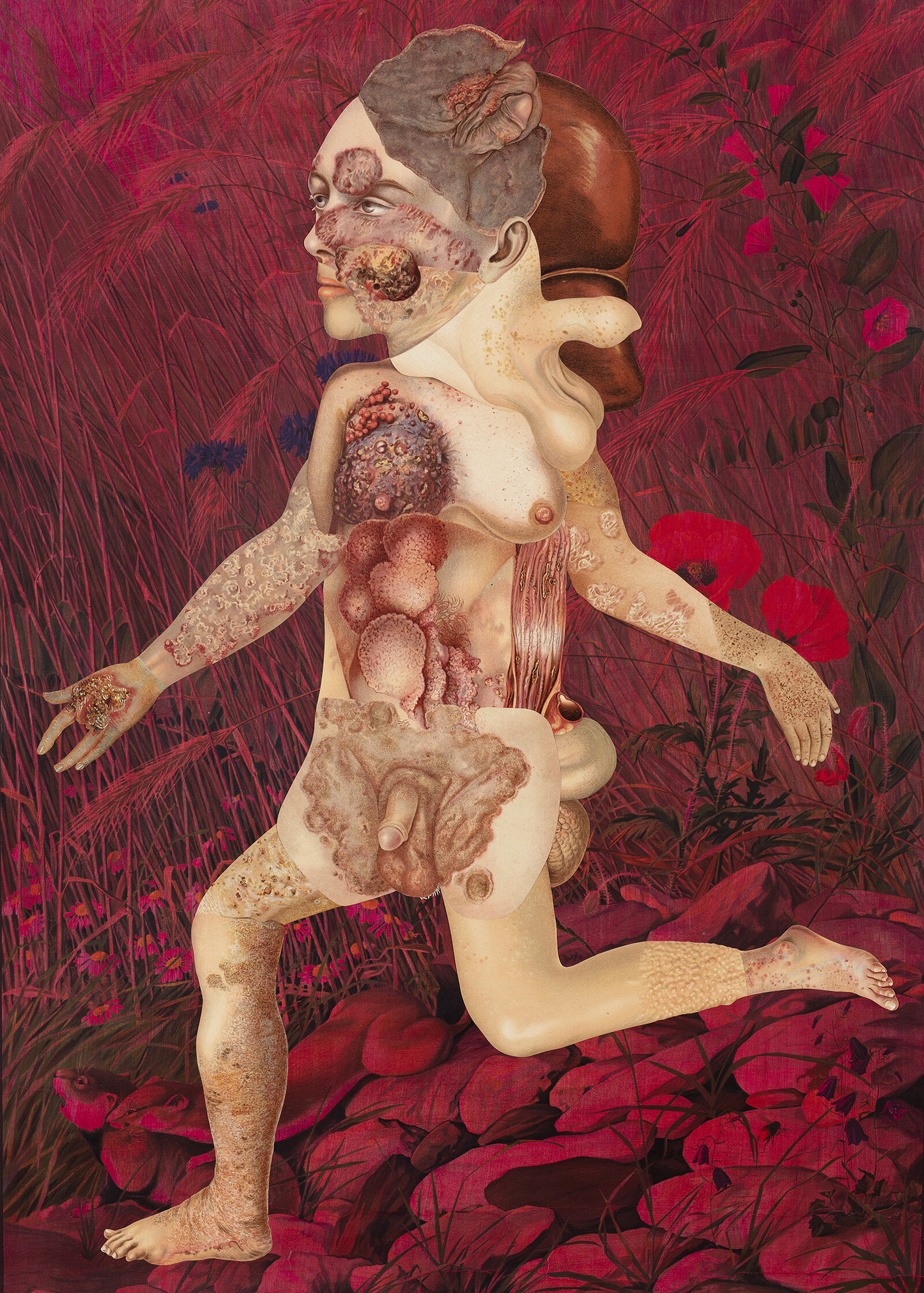Every courageous life is a song to the future
September 30–December 17, 2023
Mauritiuswall 35
50676 Cologne
Germany
Hours: Thursday–Sunday 12–7pm
T +49 221 30234466
info@temporarygallery.org
In the beginning of her book Braiding Sweetgrass: Indigenous Wisdom, Scientific Knowledge, and the Teachings of Plants Robin Wall Kimmerer recalls the story of the Skywoman, shared by the Indigenous peoples throughout the Great Lakes region in North America. In the legend, the falling Skywoman is being carried down by a goose and lands on the back of a turtle. Moved by the generosity of the animals, the Skywoman begins to dance her gratitude and through that the land begins to grow. Then she spreads the seeds that she brought with her so that the animals have plenty to eat. The story of the Skywoman is a story of reciprocity—beneficial relations between different species. She is not Eve, banished from the garden for tasting a fruit and forced to subdue the natural world in order to survive. She is an ancestral gardener, an immigrant, a welcomed guest that wants to give back.
From a contemporary perspective, there is a feminist undertone to the whole myth and this is also what makes it a perfect introduction to the exhibition of Ines Doujak at the CCA Temporary Gallery in Cologne. The main inspiration for the exhibition was namely women land defenders from all over the world—activists who work to protect ecosystems and the human right to a safe and healthy environment. They are the ones facing the acceleration of the land grab with all its horrific effects: the disruption of working economies, monoculture farming, the destruction of the soil and diversity, and climate change. Many of these defenders, who have a sense of responsibility for a common future, are members of Indigenous communities in the Global South trying to protect their ancestral lands. Many are of older age, rather than younger people with “lives ahead of them.”
What is important to mention is that “women” are defined here as a political category including all those who suffer under the material conditions that have historically been assigned to women, as trans and nonbinary people, intersex and agender, and queer people. Máxima Acuña de Chaupe in Peru, Eva Bande in Indonesia, Bai Bibyaon Ligkayan Bigkay in the Pantaron Mountain Range, Joye Braun in North Dakota, Berta Cáceres in Honduras, Maria Chaverra in Colombia, Kateryna Handziuk in Ukraine, Sônía Guajajara in Brazil, Francia Márquez in Colombia, Wangari Muta Maathai in Kenya, Vanessa Nakate in Congo, and many others—the courage of these women land defenders, working in extremely difficult conditions, gives us hope and counters the dystopian worldview constantly imposed on us.
Contrary to what you might expect, the exhibition does not refer to the activist struggles in a direct, documentary way. It operates on another level, by returning to the sphere of the symbolic. The political inspiration translates here into a captivating, sensual environment drawing from different aesthetic and cultural traditions.
The central element of the exhibition is an artistic parade in public space called “The most beautiful women are the women of the revolution”, the goal of which is to express solidarity with women land defenders from all over the world. In the weeks after the exhibition opening, the space will host a series of meetings and workshops leading to this joint action. Finally, a communal body will be formed to counter the politics of indifference and despair and regain agency in seemingly hopeless times. Activist Jakeline Romero Epiayú, artist Camilo Pachón and curator Luiza Proença will contribute to the procession—an act of internationalist solidarity based on the recognition that protecting the environment is inseparably related to political struggles against (post)colonial domination, structural racism, and misogynistic practices.
The exhibition is accompanied by a booklet with the curatorial text, poem by Lynne Thompson and two book excerpts: from Malcolm Ferdinand’s Decolonial Ecology: Thinking from the Caribbean World and Londa Schiebinger’s Plants and Empire: Colonial Bioprospecting in the Atlantic World.
Curated by Mateusz Okoński and Aneta Rostkowska.



